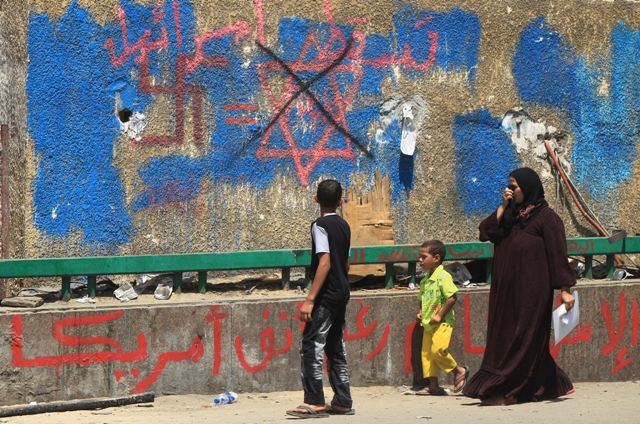Avoiding the Turkey mistake
The way that Prime Minister Benjamin Netanyahu reacts to the Sinai crisis will inevitably set the roadmap for the kind of relationship the country will have with the future Egyptian government. And from what it seems, the decision to refrain from a military operation in Gaza and not plunge into a diplomatic duel with Egypt is a step in that direction.

The attack in Eilat last Thursday, dually attempted to subvert Israel’s shaky relationship with a post-Mubarak Egypt and to defy the appearance that Hamas holds full control over the Gaza Strip. The radical organisations responsible banked on an Israeli retaliation that would put an unequivocal end to the ceasefire. Succumbing to newfound domestic pressure over the deaths of Egyptian policemen, Egypt had no option but to recall its ambassador.
Whilst it is true that the two countries enjoyed a long-standing history of pragmatic security cooperation (greatly because of U.S. interests), both parties enjoyed this honeymoon under ousted President Hosni Mubarak. The former Egyptian leader received bountiful aid from the United States to protect the border and at the same time treated the Bedouin-run Sinai as enemy territory often inundating the region with police officers to enforce Israel’s Gaza blockade.
It is also safe to say that the poor treatment of Bedouin communities on the part of both Israel and Mubarak are responsible for the security issues in the border today.The neglect of these communities laid the groundwork for cooperation between some Bedouins and radical organisations that have spun out of Hamas’s control. These organisations pay Bedouins to smuggle weapons, drugs, people or even assist in attacks. In a post-Mubarak Egypt the area has become a free for all, with a paper-thin Egyptian government struggling with political and economic capital to secure the area. However, they also know that failure to proactively and peacefully share a border with Israel is a threat to their national security and sovereignty.
As ZviBar’el put it in his op-ed in Haaretz Saturday, “it is interesting that the government’s message included a commitment to organise a special authority to deal with the Bedouins. It is clear that the government understands its failure to secure the area, a form of neglect, which now threatens Egypt’s national security and its relations with Israel”.
However, Israel’s stake in the crisis is higher and failing to cooperate with Egypt—let alone letting it exercise its authority—could be extremely costly. That includes, failing to apologise like it did with Turkey.

Israel refused to issue a formal apology after the flotilla takeover in May 2010 that resulted in the deaths of eight Turks and one American. Ankara declared then that recovery of relations depended solely on this apology. Only yesterday, Today’s Zaman reported Turkish Foreign Minister Ahmet Davutoğlu warned while on a trip to South Africa relations would only “worsen if an apology was not forthcoming following the release of the Palmer report. He declared, relations will not remain as they are now. They will deteriorate even more, as the current situation cannot be sustained”.
Perhaps, Israeli Prime Minister Benjamin Netanyahu and Defence Minister Ehud Barak believed then it was an ally they could live without. But it was a different world back then, the Arab Spring had not taken off in full force changing the political map of the Middle East and North Africa. Given the amount of change and instability no one knows for sure what the region will look like tomorrow let alone twenty years from now.
Kimberly Gouz, former Turkey Fulbright Scholar and current PhD candidate in Government at the University of Texas, agrees that Israel has more to lose than Egypt if this diplomatic tiff is not brushed-off speedily. “In an environment where Israel’s once unbreakable relationship with the US has begun to cool and its very strong relationship with Turkey has greatly deteriorated, it is not in Israel’s interest to embitter its relationship with yet another strong ally”.
Israel is asking itself many existential questions that may very well define the kind of global player it will be as change continues to sweep the volatile region. How it chooses to engage with Egypt will determine if isolation is the name of the game uselessly fighting the problem alone; or whether it will tackle a security issue bilaterally once and for all, proving that just maybe they too can change.
Romina Ruiz-Goiriena
Paris




4 Comments
Post new comment